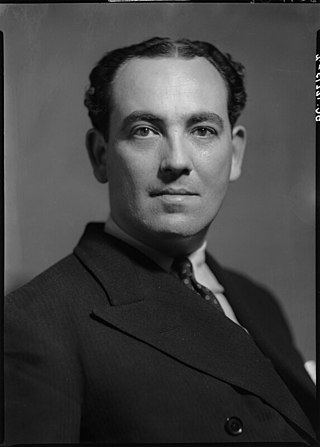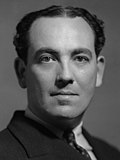
Thomas Edward Neil Driberg, Baron Bradwell was a British journalist, politician, High Anglican churchman and possible Soviet spy, who served as a Member of Parliament (MP) from 1942 to 1955, and again from 1959 to 1974. A member of the Communist Party of Great Britain for more than twenty years, he was first elected to parliament as an Independent and joined the Labour Party in 1945. He never held any ministerial office, but rose to senior positions within the Labour Party and was a popular and influential figure in left-wing politics for many years.

Maldon is a constituency in Essex represented in the House of Commons of the UK Parliament since its recreation in 2010 by Sir John Whittingdale, a Conservative.

Colonel Sir Edward Archibald Ruggles-Brise, 1st Baronet was a British Conservative Party politician.
The King's Lynn by-election, 1943 was a by-election held for the British House of Commons constituency of King's Lynn in Norfolk on 12 February 1943. The seat had become vacant when the Conservative Member of Parliament (MP) Somerset Maxwell had died in December 1942 from wounds received at the Battle of El Alamein.
The 1943 Bristol Central by-election was a by-election held on 18 February 1943 for the British House of Commons constituency of Bristol Central in the city of Bristol. The seat had become vacant when the constituency's Conservative Member of Parliament (MP) Lord Apsley had been killed on 17 December 1942, whilst on active service in the Second World War. He had been serving under the Arab Legion in Malta.
The 1945 Newport by-election was a parliamentary by-election held on 17 May 1945 for the British House of Commons constituency of Newport in Monmouthshire. It was the last by-election of the 1935–1945 Parliament.
The 1940 Kettering by-election was a parliamentary by-election held on 6 March 1940 for the British House of Commons constituency of Kettering in Northamptonshire.
The 1931 Gateshead by-election was a parliamentary by-election held on 8 June 1931 for the British House of Commons constituency of Gateshead.
The 1940 Newcastle upon Tyne North by-election was a parliamentary by-election held on 7 June 1940 for the British House of Commons constituency of Newcastle upon Tyne North.
The 1942 Rothwell by-election was a parliamentary by-election held on 7 August 1942 for the British House of Commons constituency of Rothwell in West Yorkshire.
The 1942 Spennymoor by-election was a parliamentary by-election held on 21 July 1942 for the British House of Commons constituency of Spennymoor in County Durham.
The 1985 Brecon and Radnor by-election was a parliamentary by-election held on 4 July 1985 for the House of Commons constituency of Brecon and Radnor.
The 1935 Liverpool Wavertree by-election was a by-election held in England for the House of Commons constituency of Liverpool Wavertree on 6 February 1935. It was won by the Labour Party candidate Joseph Cleary.
The 1932 Henley by-election was a parliamentary by-election held on 25 February 1932 for the House of Commons constituency of Henley.
The 1939 Westminster Abbey by-election was a parliamentary by-election held on 17 May 1939 for the British House of Commons constituency of Westminster Abbey in London.
The 1939 North Cornwall by-election was a parliamentary by-election held on 13 July 1939 for the British House of Commons constituency of North Cornwall.
The 1941 Edinburgh by-election was a parliamentary by-election held on 11 December 1941 for the British House of Commons constituency of Edinburgh Central in Scotland.
The 1943 Midlothian and Peebles Northern by-election was a parliamentary by-election held in Scotland on 11 February 1943 to elect a new Member of Parliament (MP) for the House of Commons constituency of Midlothian and Peebles Northern.
The 1939 Batley and Morley by-election was a parliamentary by-election held in the United Kingdom on 9 March 1939 for the House of Commons constituency of Batley and Morley in the West Riding of Yorkshire.
The 1937 Tonbridge by-election was held on 23 March 1937. The by-election was held due to the death of the incumbent Conservative MP, Herbert Spender-Clay. It was won by the Conservative candidate Adrian Baillie.




